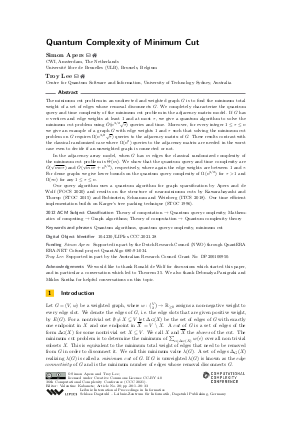LIPIcs.CCC.2021.28.pdf
- Filesize: 0.92 MB
- 33 pages

 Creative Commons Attribution 4.0 International license
Creative Commons Attribution 4.0 International license













Feedback for Dagstuhl Publishing